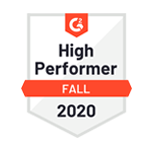Finding the right candidate in today’s competitive talent market can feel overwhelming. With over 250 resumes submitted for each corporate job opening, recruiters need efficient strategies to discover quality candidates without breaking the budget.
Fortunately, numerous free resume search platforms can help you build a robust talent pipeline. But success isn’t just about knowing which sites to use—it’s about mastering advanced search techniques, understanding platform limitations, and having the right systems to manage your discoveries.
This comprehensive guide explores the top 7 free resume search platforms, advanced sourcing strategies, and proven techniques to transform your recruitment process from reactive to proactive.
Top 7 Free Resume Search Platforms
1. Indeed Resume Database
Indeed stands as the world’s largest job search engine, hosting millions of resumes from diverse backgrounds and skill sets. With its extensive database and powerful search functionality, Indeed offers exceptional value for recruiters.
Key Features:
- Advanced search filters by location, job title, skills, and experience
- Direct access to candidate contact information
- Integration capabilities with most Applicant Tracking Systems
- Mobile-optimized platform for recruiting on the go
Best For: High-volume recruiting across multiple industries and skill levels.
The Indeed resume database makes it simple to conduct targeted searches or upgrade to premium plans for enhanced features and priority access to candidates.
2. LinkedIn Talent Solutions
LinkedIn serves as the premier professional networking platform, offering access to over 900 million professionals worldwide. Its advanced search capabilities make it indispensable for modern recruiters.
Key Features:
- Professional networking context and referrals
- Advanced Boolean search support
- Industry-specific filtering options
- Direct messaging and InMail capabilities
- Company insights and competitor analysis
Best For: Executive search, professional roles, and building long-term candidate relationships.
LinkedIn’s recruiter-friendly features include job posting capabilities, employer branding tools, and sophisticated candidate messaging systems that facilitate meaningful professional connections.
3. Glassdoor Candidate Discovery
Glassdoor combines job search functionality with company insights, offering recruiters access to engaged, research-oriented candidates who value transparency.
Key Features:
- Company review integration for informed candidates
- Salary expectation insights
- Advanced search by company experience and preferences
- Employer branding opportunities
Best For: Companies with strong employer brands seeking quality-conscious candidates.
4. Google for Jobs Integration
Google for Jobs aggregates listings from multiple sources, creating a comprehensive search environment that captures candidates across the entire web ecosystem.
Key Features:
- Cross-platform resume discovery
- Advanced Boolean search capabilities
- File-type specific searches (PDF, DOC, etc.)
- Location-based filtering with radius controls
Best For: Comprehensive searches across multiple platforms simultaneously.
5. CareerBuilder Resume Database
CareerBuilder offers robust search functionality with emphasis on skills-based matching and automated candidate recommendations.
Key Features:
- AI-powered candidate matching algorithms
- Skills assessment integration
- Diversity recruiting tools
- Automated candidate alerts and recommendations
Best For: Companies prioritizing skills-based hiring and diversity initiatives.
6. Monster Talent Network
Monster provides access to an extensive resume database with sophisticated filtering options and candidate engagement tools.
Key Features:
- Comprehensive resume database access
- Advanced search filters and Boolean support
- Candidate relationship management tools
- Industry-specific search capabilities
Best For: Recruiters seeking comprehensive candidate profiles with detailed work histories.
7. Government Job Boards
Federal, state, and local government job boards offer access to candidates with specialized skills and security clearances.
Key Features:
- Security-cleared candidate pools
- Specialized skill sets and certifications
- Government contracting experience
- Compliance-focused candidate backgrounds
Best For: Government contractors and compliance-heavy industries.
Mastering Boolean Search Techniques
While knowing where to search is important, understanding HOW to search effectively separates successful recruiters from those who struggle with information overload. Boolean search techniques can increase your relevant candidate discovery by up to 300%.

Essential Boolean Operators
AND Operator – Narrowing Your Search
“software engineer” AND python AND “machine learning”
This finds candidates who have ALL specified terms, creating more targeted results.
OR Operator – Expanding Your Options
(developer OR engineer OR programmer) AND javascript
Use parentheses to group related terms and capture various job titles for the same skill set.
NOT Operator – Excluding Irrelevant Results
“project manager” AND construction NOT software
Eliminates candidates from unwanted industries or backgrounds.
Quotation Marks – Exact Phrases
“senior software engineer” AND “5+ years experience”
Ensures search results contain exact phrases, improving relevance.
Wildcards (*) – Capturing Variations
manag* AND team
Returns results for manage, manager, managing, management, and related variations.
Platform-Specific Search Strategies
Google Search Optimization:
site:linkedin.com “software engineer” AND (python OR java) AND resume filetype:pdf
LinkedIn Advanced Searches:
(“product manager” OR “product owner”) AND (agile OR scrum) AND “B2B SaaS”
Indeed Boolean Strings:
(recruiter OR “talent acquisition”) AND healthcare NOT agency
Pro Tips for Boolean Mastery
- Start broad, then narrow – Begin with general terms and add specifics
- Test and refine – Different platforms may interpret operators differently
- Save successful strings – Build a library of proven search queries
- Use location modifiers – Include geographic terms when relevant
- Consider synonyms – Different candidates use different terminology
Advanced Resume Search Strategies
Multi-Platform Sourcing Approach
Successful recruiters don’t rely on a single platform. Research shows that using multiple sources increases candidate quality by 69%. Here’s a strategic approach:
Phase 1: Broad Discovery (Google, Indeed)
- Cast a wide net to understand the available talent pool
- Identify common skills and experience patterns
- Discover unexpected candidate sources
Phase 2: Professional Focus (LinkedIn, Glassdoor)
- Target professional networks and engaged candidates
- Leverage industry connections and referrals
- Access detailed professional backgrounds
Phase 3: Specialized Sourcing (Industry-specific boards)
- Tap into niche communities and specialized skill sets
- Find passive candidates not actively job searching
- Access candidates with specific certifications or clearances
Search Query Optimization
Keyword Research:
- Analyze job descriptions for essential terms
- Research industry-specific terminology
- Consider regional variations in job titles
Query Construction:
- Start with 3-5 core keywords
- Add location and experience modifiers
- Include industry-specific terms
- Test different combinations and track results
Results Analysis:
- Monitor search result quality and relevance
- Track which queries produce the best candidates
- Refine based on successful placements
Timing and Frequency Strategies
Optimal Search Times:
- Tuesday-Thursday for the highest candidate activity
- Early morning and evening hours for professional platforms
- Consider time zones for remote positions
Search Frequency:
- Daily searches for urgent positions
- Weekly searches for ongoing needs
- Monthly comprehensive audits of search strategies
Resume Quality Assessment & Screening
Not all resumes from free platforms are created equal. Here’s how to quickly identify high-quality candidates:
Quality Indicators to Look For
Professional Presentation:
- Clear, consistent formatting
- Professional email address
- Complete contact information
- Quantified achievements and results
Content Quality:
- Specific, measurable accomplishments
- Relevant skills and certifications
- Progressive career advancement
- Industry-specific terminology
Red Flags to Avoid:
- Generic, template-based resumes
- Unexplained employment gaps
- Frequent job changes without progression
- Lack of specific achievements or metrics
Initial Screening Checklist
Basic Requirements Met
- Required skills and experience levels
- Geographic location compatibility
- Salary expectations alignment
- Availability timeline match
Quality Indicators Present
- Professional presentation and formatting
- Quantified achievements and results
- Relevant industry experience
- Progressive career development
Cultural Fit Potential
- Company size experience alignment
- Industry background compatibility
- Role progression makes sense
- Communication style indicators
Managing and Organizing Found Resumes
Finding great resumes is only the beginning. Without proper organization and follow-up systems, even the best discoveries can slip through the cracks.
Data Organization Strategies
Immediate Actions:
- Create standardized naming conventions for saved resumes
- Tag candidates by source, skill set, and quality level
- Record search terms that led to discovery
- Note initial assessment and interest level
Database Management:
- Import candidate data into your ATS or CRM system
- Create searchable candidate profiles
- Track engagement history and communication preferences
- Maintain GDPR and privacy compliance
Leveraging Technology for Scale
This is where a comprehensive Applicant Tracking System (ATS) becomes invaluable. Platforms like RecruitBPM seamlessly integrate with multiple resume sources, automatically parsing and organizing candidate data into structured, searchable profiles.
Key Technology Benefits:
- Automated Resume Parsing: Extract and standardize information from various resume formats
- Advanced Search Capabilities: Boolean search functionality across your entire candidate database
- Integration Management: Connect multiple free platforms into a centralized system
- Analytics and Reporting: Track which sources provide the best candidates for specific roles
Free vs. Paid: Making the Strategic Choice
Understanding when to invest in paid solutions can significantly impact your recruiting ROI.
Free Platform Limitations
Volume Restrictions:
- Limited daily resume views (typically 3-10)
- Restricted contact information access
- Basic search functionality only
- No advanced filtering options
Quality Challenges:
- Mixed candidate quality levels
- Limited candidate engagement data
- No applicant tracking integration
- Minimal customer support
Time Investment:
- Manual data entry and organization
- Individual platform management
- Limited automation capabilities
- Higher administrative overhead
When to Consider Paid Solutions
High-Volume Recruiting:
- Processing 50+ candidates per week
- Multiple simultaneous open positions
- Urgent hiring timelines
- Enterprise-level recruitment needs
Quality and Speed Requirements:
- Need for advanced filtering and search
- Automated workflow management
- Integration with existing systems
- Comprehensive analytics and reporting
ROI Calculation: Consider that recruiters spend an average of 13 hours per week sourcing candidates for a single role. AI-powered tools can reduce this by 70%, potentially saving 9+ hours weekly per open position.
Advanced Analytics and Performance Tracking
Measuring your sourcing effectiveness helps optimize your strategy and demonstrate recruiting value.
Key Metrics to Track
Source Performance:
- Candidates sourced per platform
- Quality score by source
- Time-to-contact by platform
- Response rates by source type
Search Effectiveness:
- Boolean string success rates
- Keywords driving best results
- Platform-specific conversion rates
- Search time vs. quality correlation
Pipeline Metrics:
- Source-to-interview conversion rates
- Source-to-hire success rates
- Time-to-fill by sourcing method
- Cost-per-hire by platform
Optimization Strategies
Data-Driven Decisions: Use recruitment analytics to identify your most productive sourcing channels and invest more time in high-performing platforms.
Continuous Improvement:
- A/B test different search approaches
- Refine Boolean strings based on results
- Adjust platform mix based on performance
- Update strategies based on market changes
RecruitBPM’s Analytics Advantage: Track the performance of different sourcing channels with comprehensive recruitment analytics and reporting features. Our platform helps you optimize your strategy and invest time in the most productive platforms.
From Discovery to Hire: Converting Finds into Placements
Finding resumes is just the first step. Converting discoveries into successful hires requires systematic candidate relationship management.

Engagement Strategy Framework
Initial Outreach:
- Personalized messaging based on specific qualifications
- Clear value proposition for the opportunity
- Multiple touchpoint strategy (email, phone, LinkedIn)
- Professional yet engaging communication tone
Relationship Building:
- Regular check-ins and market updates
- Career development conversations
- Industry insights and networking opportunities
- Long-term relationship focus beyond immediate openings
Pipeline Management:
- Systematic follow-up scheduling
- Engagement history tracking
- Interest level monitoring
- Opportunity matching and alerts
Candidate Experience Optimization
Professional Communication:
- Prompt response times
- Clear process explanations
- Regular status updates
- Respectful of candidate time and preferences
Value-Added Interactions:
- Market insights and salary benchmarking
- Career development guidance
- Industry networking introductions
- Professional development resources
Technology-Enabled Experience: RecruitBPM’s CRM capabilities help you nurture relationships with candidates found through free sources, tracking interactions, scheduling follow-ups, and maintaining engagement throughout your hiring process.
Legal and Compliance Considerations
When sourcing resumes from free platforms, understanding legal requirements protects both candidates and your organization.
Data Privacy Essentials
GDPR Compliance:
- Obtain explicit consent for data processing
- Maintain detailed records of consent
- Provide data access and deletion rights
- Implement secure data storage practices
Candidate Rights:
- Right to know how their data is used
- Right to access their stored information
- Right to request data corrections
- Right to data deletion upon request
Best Practices for Compliance
Documentation Requirements:
- Record consent and data source
- Maintain audit trails for all data processing
- Document legitimate business interests
- Keep detailed retention and deletion schedules
Security Measures:
- Encrypt sensitive candidate data
- Limit access to authorized personnel only
- Regular security audits and updates
- Incident response procedures
Mobile and Extension Tools for Modern Recruiting
Today’s recruiters need flexibility to source candidates anywhere, anytime.
Essential Mobile Tools
LinkedIn Mobile App:
- Full search functionality on mobile
- Direct messaging and connection requests
- Candidate profile saving and tagging
- Push notifications for responses
Indeed Mobile Platform:
- Mobile-optimized resume browsing
- One-touch candidate contact
- Location-based candidate discovery
- Saved search notifications
Chrome Extensions for Power Users
LinkedIn Helper Extensions:
- Automated connection requests
- Profile data extraction
- Email finder integration
- Contact information discovery
Resume Parser Extensions:
- One-click resume extraction from web pages
- Direct ATS integration
- Contact information capture
- Social profile linking
RecruitBPM Integration: Our platform includes mobile optimization and browser extensions that seamlessly integrate with your existing workflow, allowing you to source, save, and manage candidates from any device or platform.
Future Trends in Resume Sourcing
Understanding emerging trends helps future-proof your recruiting strategy.
AI and Automation Evolution
Predictive Sourcing: AI algorithms that predict candidate interest and availability based on online behavior and career patterns.
Automated Candidate Matching: Machine learning systems that improve matching accuracy over time based on successful placements and feedback.
Natural Language Processing: Advanced resume parsing that understands context, not just keywords, improving candidate discovery and matching.
Platform Integration Trends
API-First Platforms: Increased connectivity between different recruiting tools and platforms for seamless data flow.
Unified Candidate Profiles: Aggregated candidate information from multiple sources, creating comprehensive, up-to-date profiles automatically.
Real-Time Sync: Instant updates across platforms when candidate information changes or new data becomes available.
Conclusion: Building Your Comprehensive Sourcing Strategy
Free resume search platforms offer tremendous value for recruiters willing to invest time in learning advanced techniques and building systematic processes. Success comes from combining multiple platforms, mastering Boolean search techniques, and implementing proper candidate management systems.
The key is moving beyond simple platform browsing to strategic, data-driven sourcing that consistently delivers quality candidates. Whether you’re a small business owner managing occasional hires or part of a large talent acquisition team handling high-volume recruiting, these free resources can significantly expand your candidate reach.
However, as your recruiting needs grow, consider how technology solutions like RecruitBPM can amplify your efforts. Our AI-driven platform transforms the chaos of multiple free sources into an organized, searchable, and actionable talent pipeline.
Ready to Transform Your Resume Sourcing?
Take your candidate discovery to the next level with RecruitBPM’s comprehensive recruiting platform. From AI-powered resume parsing to advanced Boolean search capabilities and integrated candidate relationship management, we help you turn free platform discoveries into successful placements.
Get a Free Demo and see how our platform can streamline your entire recruiting process while maximizing the value of every resume you discover.
Frequently Asked Questions
Q: Are these free resume search resources truly free for recruiters? A: Yes, all platforms listed offer free access to resume databases, though many also provide premium features for enhanced functionality. Free accounts typically include basic search and limited daily resume views.
Q: How do I ensure data security when using multiple free platforms? A: Implement consistent data handling practices, obtain proper consent, maintain secure storage, and ensure GDPR compliance across all platforms. Consider using a centralized ATS system to manage data security systematically.
Q: Can I search for candidates outside my local area using these platforms? A: Absolutely. Most platforms offer location-based filtering that allows you to search nationally or internationally. Some also provide remote work filtering options for distributed teams.
Q: What’s the most effective way to organize candidates from multiple sources? A: Use a centralized system (ATS or CRM) to standardize candidate data from all sources. Tag candidates by source, quality, and skill set while maintaining detailed search records for optimization.
Q: How often should I update my search strategies? A: Review and refine your approach monthly. Track performance metrics, test new Boolean strings, and adjust platform mix based on results. Stay current with platform updates and new features.
Remember: The most successful recruiters combine multiple sourcing methods with systematic processes and the right technology stack. Start with these free resources, master the techniques, and scale with appropriate tools as your needs grow.

















